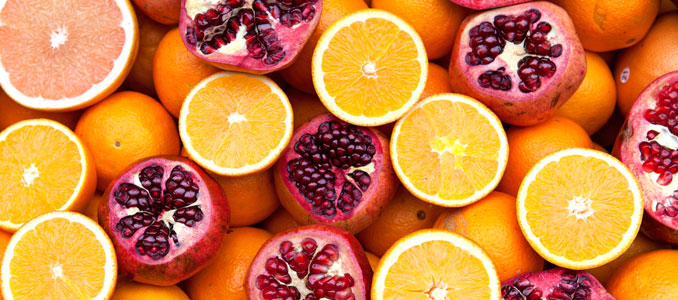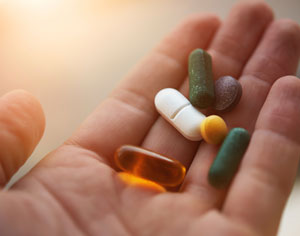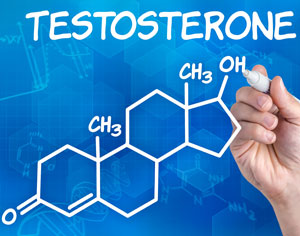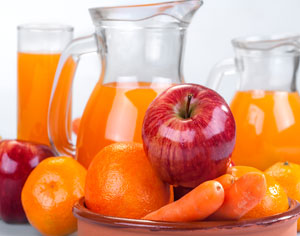The Effect of Vitamins on Testosterone Levels
The ease and simplicity of purchasing fast, packaged, and convenience foods has left the diets of many people void of the vitamins and minerals that the body needs to help boost the production of many hormones, including testosterone. That is why information about the connection between testosterone and vitamins is provided here to help benefit men and women needing to improve or increase the body’s production of this essential chemical messenger.
Poor dietary choices can reduce the amount of B vitamins, vitamin D, magnesium, zinc, and other crucial nutrients that the body requires to produce its many necessary hormones.
Low T – a decline in testosterone levels – can happen to anyone, male or female, at any point in time from the age of thirty onwards. Men typically start a gradual reduction in the secretion of testosterone in their late twenties to early thirties, and this continues at an average rate of 1 to 2 % each year, taking into consideration lifestyle, exercise, sleep, and dietary habits. That is one of the reasons why vitamins and testosterone levels go hand in hand – nutrition plays a role in how well the body is prompted to manufacture some of its essential hormones. By the time a man enters his fifties, this decrease in testosterone production has been going on for about twenty years, and he could find that his level is 20 – 40 % less than it was two decades earlier.
Women are most likely to find themselves dealing with this testosterone deficiency around the start of perimenopause and continuing on through the entire menopause cycle. This is in addition to the decrease in estrogen and progestin levels as all three hormones are secreted by the ovaries, which have stopped their functions. Many women are also vitamin deficient at this point in their lives.
When the body is not getting all the proper nutrients that it needs, hormones such as testosterone will decline and cause symptoms that can affect appearance, performance, and emotional well-being. Medical conditions such as type 2 diabetes, osteoporosis, heart disease, high cholesterol, obesity, anemia, and high blood pressure are all possible. Muscle and bone growth and mass decline, fat retention increases, hair on the head starts to thin, body hair increases, libido and sexual performance decreases, and even memory and cognitive functions begin to suffer. Depression and other mood changes are likely to affect interpersonal relationships on all levels.
Vitamins and Minerals That Increase Testosterone Levels
There are many different herbs, vitamins, and supplements that can help to boost testosterone levels naturally without medical intervention. One word of caution before jumping on the vitamin bandwagon: always speak with a doctor before adding any form of supplementation to your diet, and these products can interfere with some medications and medical conditions. When looking to increase or improve the production of testosterone, vitamins and minerals can help quite a bit although people already dealing with a serious deficiency will likely need to use some form of testosterone replacement therapy in the beginning to help the body along.
Many vitamins and minerals that boost testosterone levels can be easily found in the foods we eat. This information, where applicable will be included here. For those individuals who do not get enough of their essential vitamins and minerals from foods, it is crucial to point out that manufacturers of dietary supplements do not require approval from regulating agencies. Some websites test and rate these products for safety and efficacy, and it is recommended that they are checked before spending money on any supplements. ConsumerLab, LabDoor, and Consumer Reports are all good options.
When looking at low testosterone and vitamins, vitamin D is often high at the top of the list. The most recent study has shown that men who had a vitamin D deficiency had lower levels of free testosterone and higher levels of estrogen in their bloodstreams. This also translated to higher body fat composition and lower mean muscle mass. Men with decreased vitamin D levels also had reduced fertility rates, higher risks for cardiovascular disease, and were more apt to be depressed. Since there are vitamin D cellular receptors in the glands that release testosterone, increasing the intake of salmon, sardines, tuna, milk, eggs, shiitake mushrooms, and cheese is recommended.
Zinc is also extremely important when discussing testosterone and vitamins, as its relationship with testosterone and reproductive health has been widely studied. Not only does adequate zinc provide a significant boost to testosterone levels, but it also helps growth hormone and insulin growth factor 1 production. Zinc deficiency increases the risk of cancer, lowers fertility, and increases prostate growth in men and breast cancer risk in women. Foods that are high in zinc include oysters, beef, lamb, sesame and pumpkin seeds, lentils, garbanzo beans, cashews, turkey, quinoa, shrimp, and spinach. Make sure that any zinc supplements do not contain calcium, as this can impair absorption.
It is also important to get enough magnesium to raise testosterone levels. Magnesium decreases inflammation, improves antioxidant capacity, enables enzyme production that helps with calcium absorption of vitamin D, bone building, relaxes the central nervous system, and aids in cardiovascular health. Another benefit of magnesium is that promotes sleep – crucial for both testosterone and growth hormone secretion. Foods to consume are seeds (pumpkin, sesame, and sunflower), spinach, swiss chard, soybeans, quinoa, beans (black and navy), cashews, broccoli, and bananas.
Foods and Vitamins That Boost Testosterone
There are certainly many different foods and vitamins that boost testosterone, and one of the most beneficial is sunflower seeds. It is recommended that men with Low T consume 1 to 2 ounces of these nutritious seeds each day. The B vitamins are crucial for the body in many ways, and this can also affect testosterone production and performance. Since this is a large category of vitamins, it will be covered in detail in this section.
Let us explore the B vitamins and testosterone production. These vitamins must be added from outside sources since the body cannot manufacture or store them naturally. The B vitamins are:
- Thiamine (B1) – works with the neurological system, and can affect mental functions and neural health. Testosterone binds to androgen receptors throughout the adrenal and endocrine systems that are closely linked to the neurological system, and that can affect the uptake of testosterone in the body. Thiamine also plays a role in the indirect maintenance of muscle mass, and a lack of vitamin B1 can lead to muscle atrophy, one of the signs of Low T. Turn to sunflower seeds, beans (navy, black, pinto, and lima), barley, lentils, oats, and green peas.
- Riboflavin (B2) – this vitamin helps to inhibit the enzyme 5 alpha-reductase from converting testosterone into DHT – dihydrotestosterone. Too much DHT can limit free testosterone in the body and lead to male pattern baldness. Bananas are an excellent source of riboflavin, as are soybeans, spinach, beet greens, yogurt, crimini mushrooms, eggs, almonds, turkey, and asparagus.
- Niacin (B3) – although this vitamin is known for its growth hormone boosting properties, it also helps produce the HDL cholesterol that is the basis for testosterone. Niacin also aids in muscle growth and slowing the aging process, and can be found in tuna, chicken, turkey, salmon, lamb, beef, sardines, peanuts, shrimp, and brown rice.
- Pantothenic acid (B5) – this known cure for acne is a fat metabolizer and cholesterol producer – the building block of testosterone. Pantothenic acid aids the adrenal system in producing sex and stress hormones, as well as assisting in the production of red blood cells. B5 can be found in shiitake and crimini mushrooms, avocado, sweet potato, lentils, dried peas, chicken, turkey, yogurt, and broccoli.
- Pyridoxine (B6) – B6 plays a more direct role in testosterone production by suppressing the synthesis of estrogen in the body. It helps to form hemoglobin that carries oxygen throughout the body in red blood cells. It works to maintain normal levels of blood glucose, produces antibodies that help fight infections, transmits messages between nerve cells, and boosts the immune system. Pyridoxine can be found in tuna, turkey, beef, chicken, salmon, sweet and white potatoes, sunflower seeds, spinach, bananas, kidney beans, and lentils.
- Biotin (B7) – improves how glucose in used in the body, which can reduce the risk of obesity. Weight gain is synonymous with Low T, and biotin can be found in organ meats, barley, peanuts, almonds, soybeans, sweet potato, eggs, onions, oats, tomatoes, carrots, walnuts, and salmon.
- Cobalamin (B12) – aids in the processing of carbohydrates and fats and is essential for the production of hormones, red blood cells, and DNA. This “energy” vitamin can raise testosterone levels and have a positive effect on sperm concentration and mobility. Find an abundant supply in sardines, salmon, tuna, cod, lamb, scallops, shrimp, beef, milk, and yogurt.
- Folic acid – this vitamin is essential for the synthesis and maintenance of new cells, DNA and RNA, repairs damaged muscles, and produces nitric oxide that helps increase muscle mass, which, in turn, increases testosterone levels. The best sources of folic acid include lentils, beans (pinto, garbanzo, navy, black, and kidney), asparagus, spinach, turnip greens, and broccoli.
These vitamins, while available in supplemental form, can also come from eating leafy greens and whole foods. Remember, all B vitamins are not produced in the body, and must come from outside sources. They are water soluble and easily excreted in urine, so there is little chance of taking too much through supplementation.
The correlation between testosterone and B vitamins has been studied only slightly. It is widely understood that testosterone helps increase the production of red blood cells. Although it is not known if these essential B vitamins can boost actual testosterone production, they may have an impact on the rate of testosterone synthesis. Their overall benefits for the body, and in many ways, testosterone, have been shown above.
Benefits of Using Vitamins to Increase Testosterone
There is clearly a wealth of information why people should incorporate dietary changes such as the ones provided here into their daily eating plans. The above-mentioned vitamins and minerals that increase testosterone levels are merely some of the ways men and women can improve their overall testosterone production and well-being.
Since there is so much information to provide on this subject, we also recommend reading the following reports:
- Herbs and Vitamins to Increase Testosterone
- Ways to Increase Testosterone
- Foods That Increase Testosterone
The benefits of using vitamins to increase testosterone levels include improved well-being, greater energy, healthier skin and hair, sharper memory, lower cholesterol, weight loss, and improved libido and sexual functions. Vitamins are much needed by all functions in the body, and while it is best to get them from whole food sources, supplements can offer many benefits, as well.
Options for Testosterone Replacement
There are certainly many ways to improve vitamin intake through the foods one eats, or the supplements that are taken. Unfortunately, these do not always translate to higher levels of testosterone because a person may be dealing with a deficiency that has reached a point where only medical intervention can help.
When vitamins and minerals for testosterone boosting fail to provide the desired results, or if a person is not willing to give up pizza for tuna, French fries for broccoli, and chocolate cake in favor of a bowl of seeds and nuts, other options can help.
Many women and men will reap tremendous rewards by using doctor-prescribed testosterone treatment. Women will most likely be provided with testosterone cream in the dosage that is strength specific for their personal needs.
Men have other options for testosterone replacement, including:
- Testosterone cypionate injections
- Testosterone enanthate injections
- Transdermal testosterone patches
- Transdermal testosterone gels and creams
- Transbuccal testosterone pellets
Implants and pills are not highly recommended or widely used in the US. Most men opt for testosterone cypionate injections for their efficacy and affordability. It is recommended to speak with a hormone replacement specialist to determine what the best form of treatment will be for your particular needs. Blood analysis and physical examination are required, along with a full medical history disclosure before a diagnosis of Low T and treatment with testosterone therapy can be prescribed.
National HRT is a US hormone replacement therapy clinic that helps men and women overcome the unwanted and sometimes debilitating effects of hormone deficiencies. Call today for a free consultation with a medical advisor.
- Effect of vitamin D supplementation on testosterone levels in men.Pilz S, Frisch S, Koertke H, Kuhn J, Dreier J, Obermayer-Pietsch B, Wehr E, Zittermann A.Horm Metab Res. 2011 Mar;43(3):223-5.. Epub 2010 Dec 10.
- Effect of vitamin C on testosterone level, sperm count and sperm morphology in gentamicin-induced Wistar ratsPilz S, Frisch S, Koertke H, Kuhn J, Dreier J, Obermayer-Pietsch B, Wehr E, Zittermann Published: 9 January 2014 Iis Rahayu, Elly Usman, Mohamad Reza
- Vitamin C ameliorates the adverse effects of dexamethasone on sperm motility, testosterone level, and spermatogenesis indexes in mice F Sadeghzadeh, MS Mehranjani , M Mahmoodi First Published December 9, 2018 Research Article
- Vitamin D and Testosterone in Healthy Men: A Randomized Controlled Trial. Elisabeth Lerchbaum, Stefan Pilz, Barbara Obermayer-PietschPublished in The Journal of clinical endocrinology 2017







